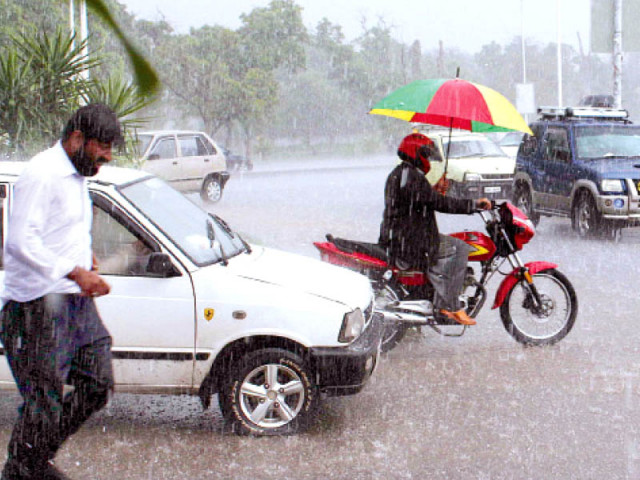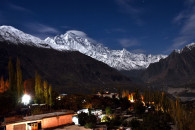Climate change: Urbanisation, deforestation taking toll on capital city
Experts suggest using satellite images of Islamabad to identify heat-emitting areas.

Rapid urbanisation and development and massive deforestation are taking a toll on the capital city, as its temperatures were constantly rising year by year, experts say.
Meteorologists and environmentalists say that Pakistan is already among the top 10 countries where unusual weather patterns are making major environmental impacts, and the situation may further deteriorate in the coming years if attention is not paid to climate change issues.
Former Pakistan Environmental Protection Agency director-general Asif Shuja said that due to widespread felling of trees and rapid urbanisation, temperatures in the capital city have started to regularly cross 44 degrees in the summer.
“It is because of new construction and uprooting of trees,” he said, suggesting that there was a need to take satellite images of Islamabad to gauge the most heat-emitting areas.
He said that a PAK-EPA project, under which satellite images of the capital city were to be taken to determine the impact of climate change, has been waiting for implementation for years.
“Once the major heat-emitting areas are detected, it will help take preventive measures to control rising temperatures of the city,” he said.
Shuja said that one of the best possible options to control emissions and global warming was planting more and more saplings and trees and build using heat-absorbing materials.
“After the devolution of the ministry of environment under the 18th Amendment, no project on protection of forests has been undertaken by any department in the country,” he said.
Shuja said that the government needed to invest more on environmental issues to make the country clean and green.
“Instead of increasing allocations for the environment sector, the government is slashing funds every year,” he said.
Pakistan Meteorological Department National Agromet Centre Director Dr Khalid Mahmood Malik said that last week it was expected that Islamabad would receive 50 to 60 millimetres (mm) rain, it hardly 10 to 15mm actually came down.
“Now, Islamabad mostly receives scattered rains is because of the impact of climate change and to a lesser extent, massive chopping of trees,” he said.
Malik said that in the current month, the mercury level will shoot up to 44 degrees Celsius with 50 per cent humidity.
The capital will have a second spell of rain from mid July which will be light to moderate, he said adding that the public will get relief in the first 10 days of August.
Published in The Express Tribune, July 6th, 2014.



















COMMENTS
Comments are moderated and generally will be posted if they are on-topic and not abusive.
For more information, please see our Comments FAQ